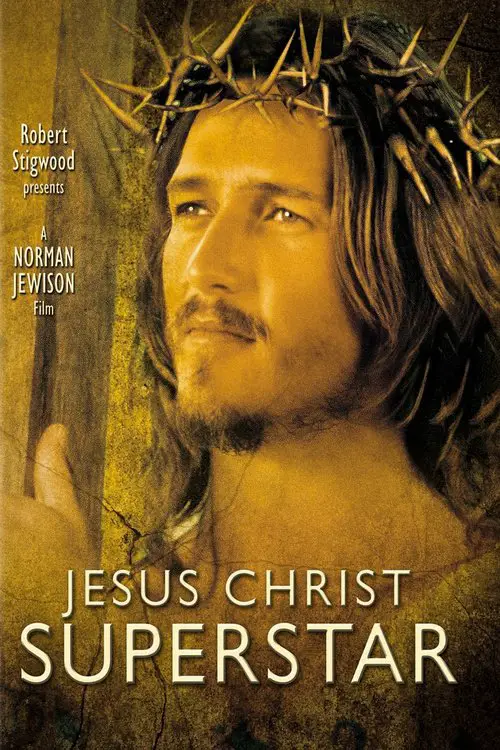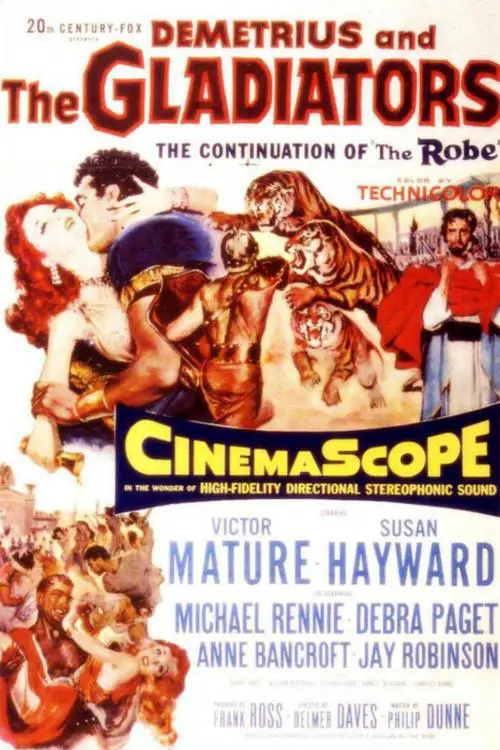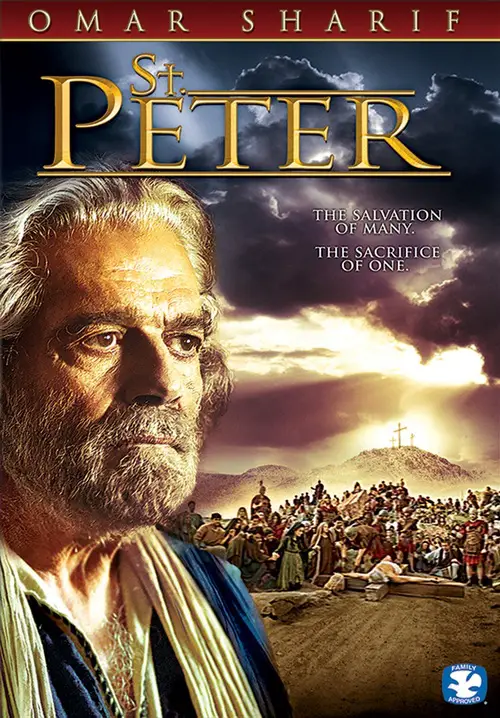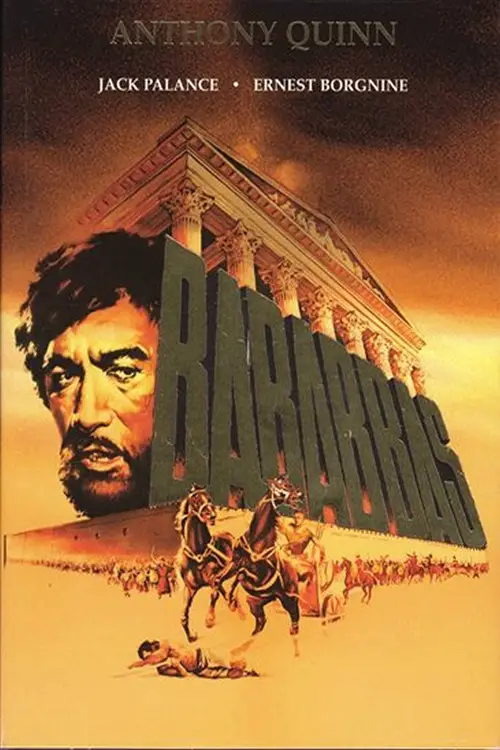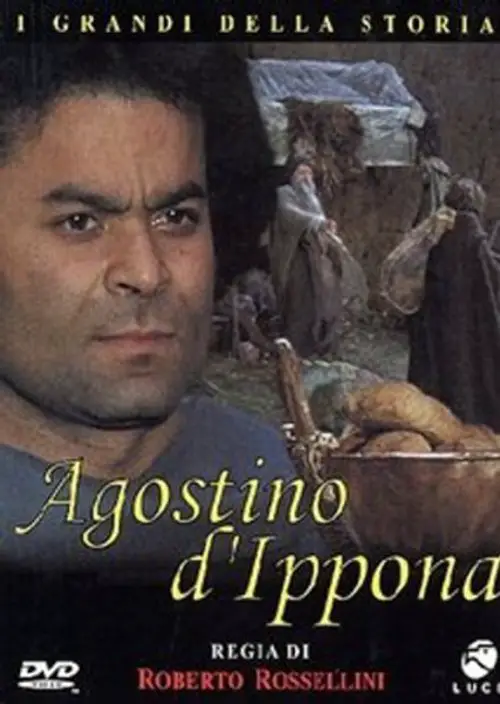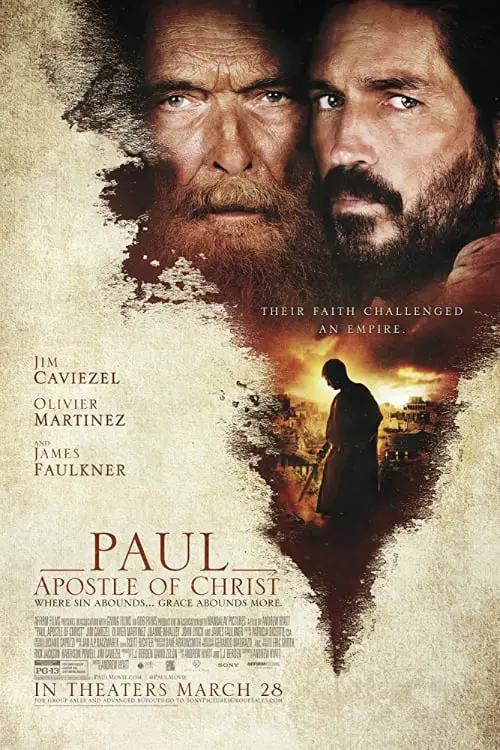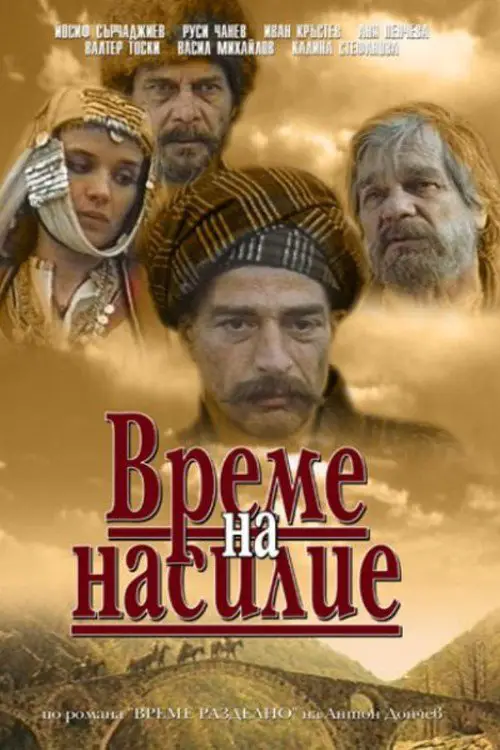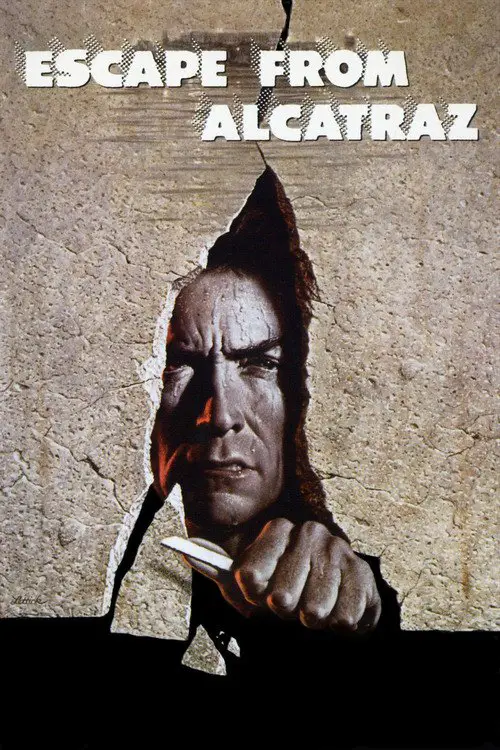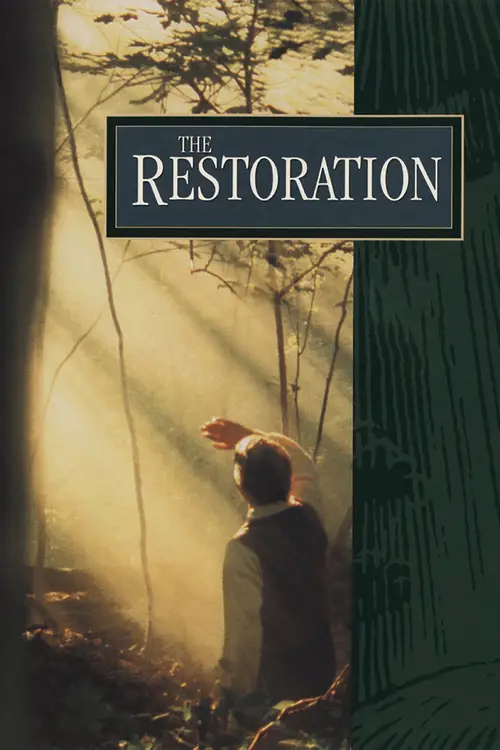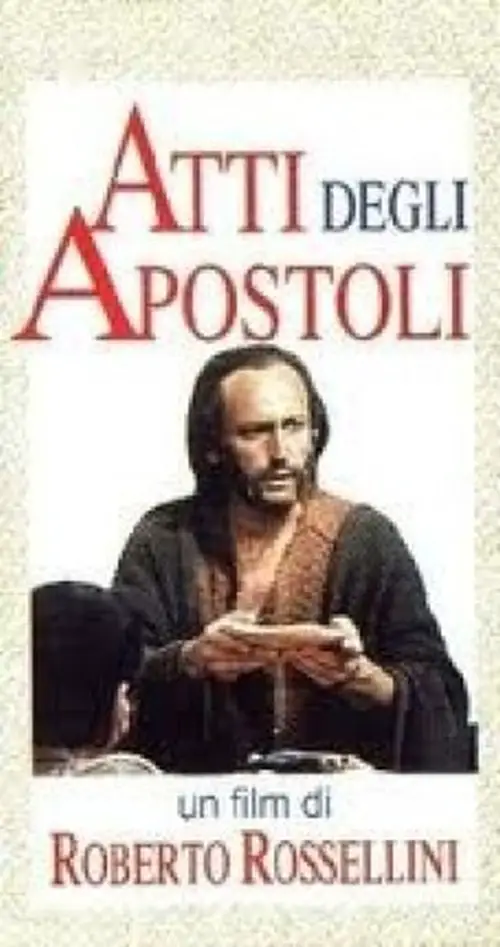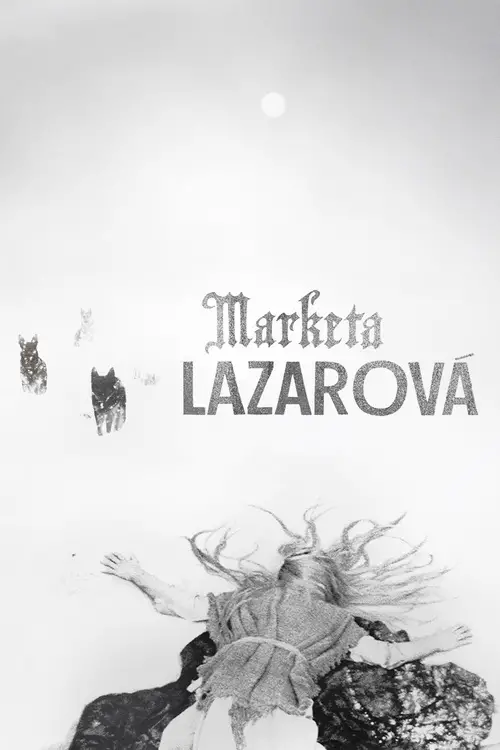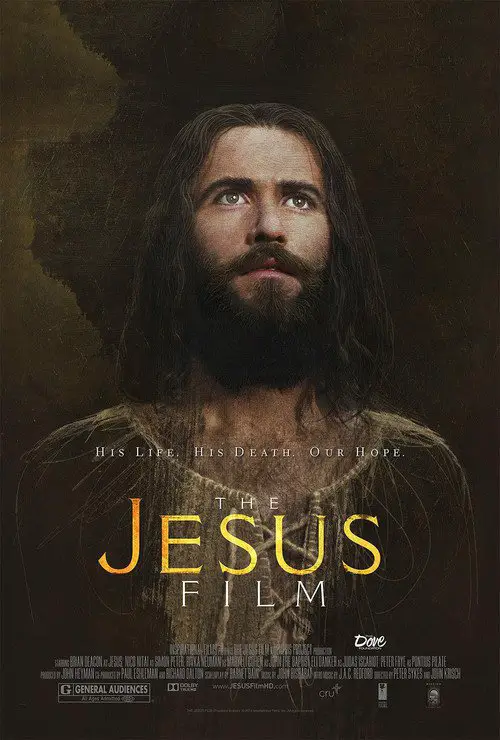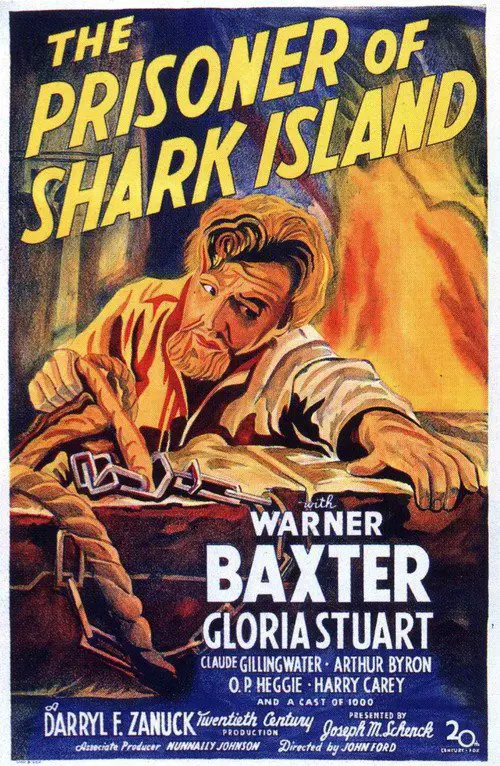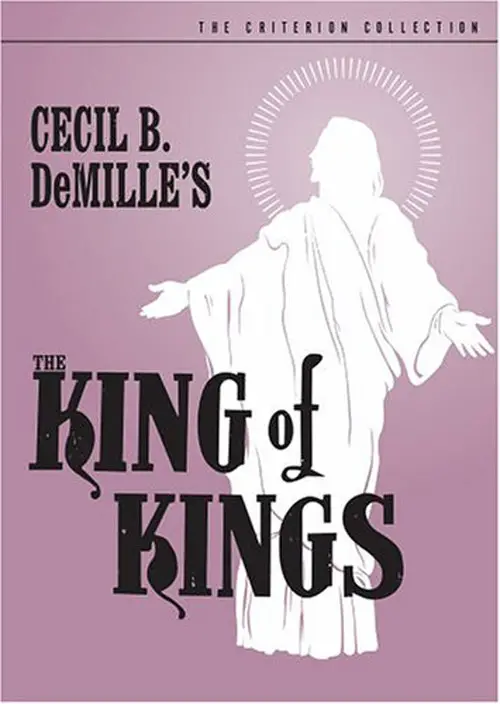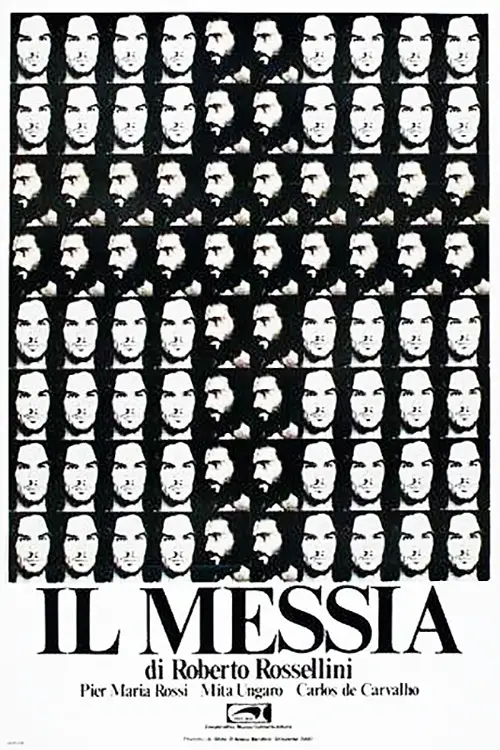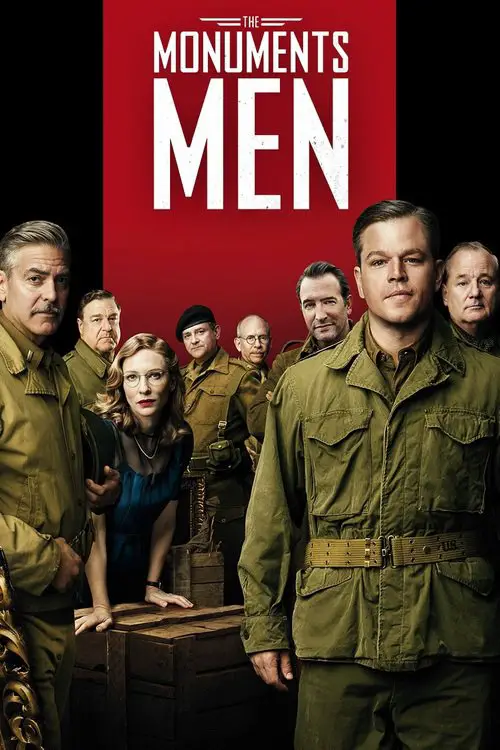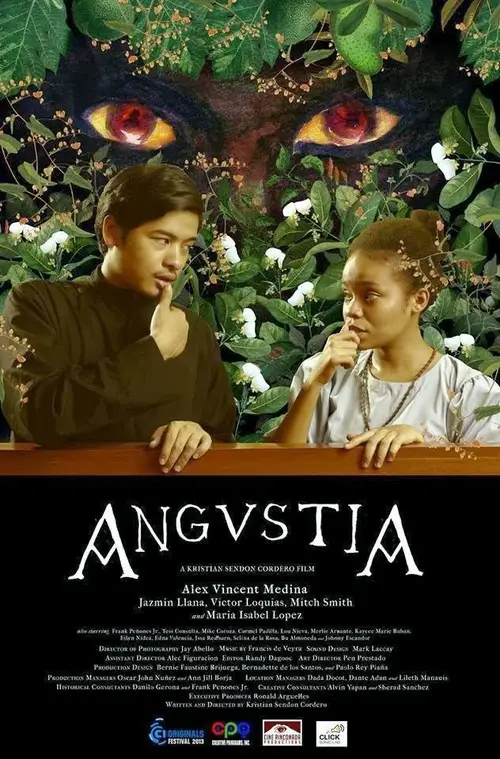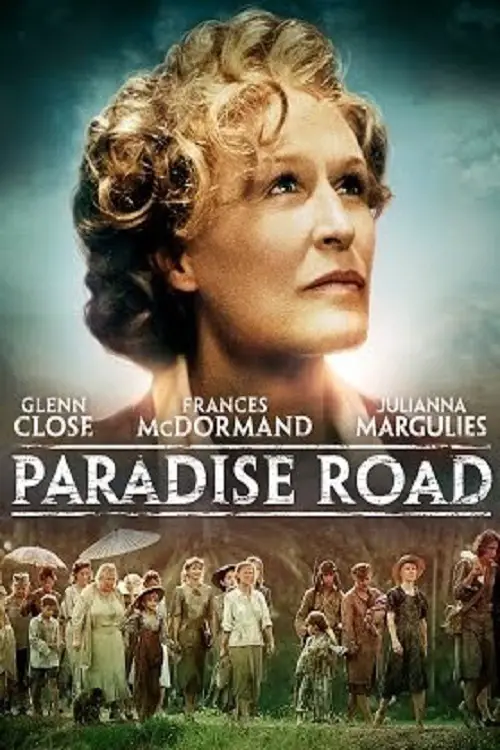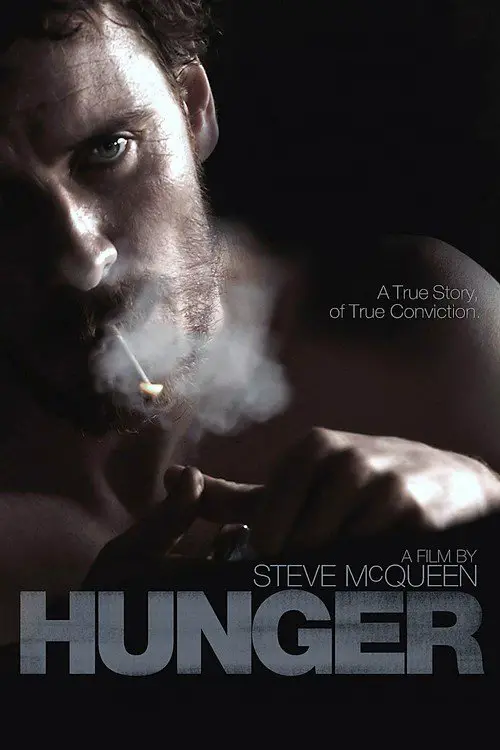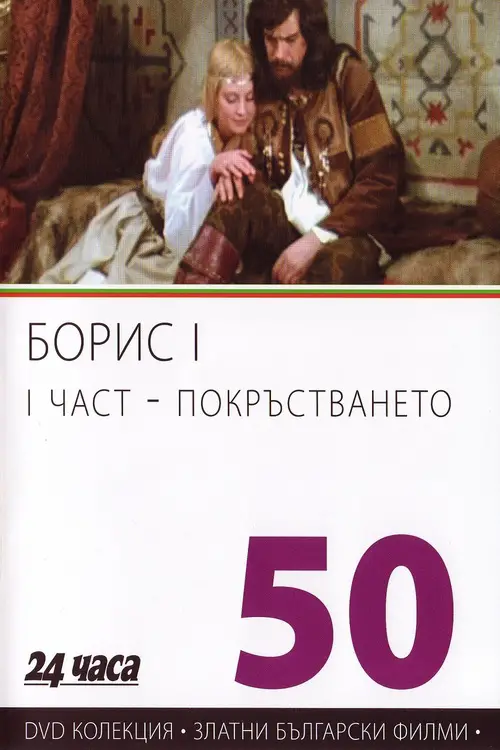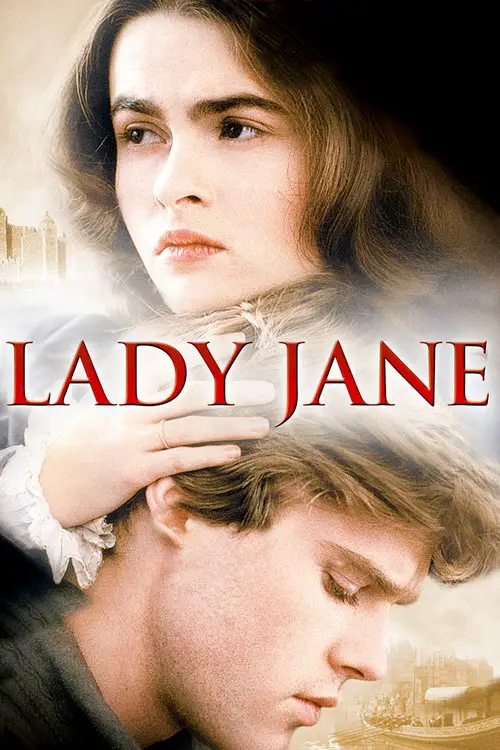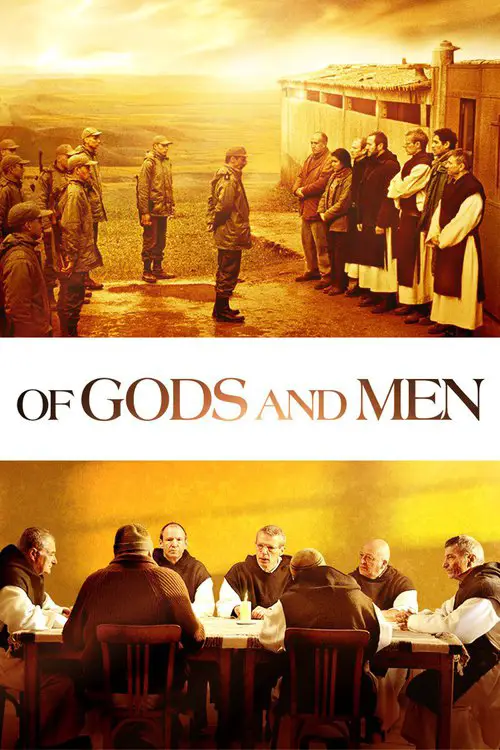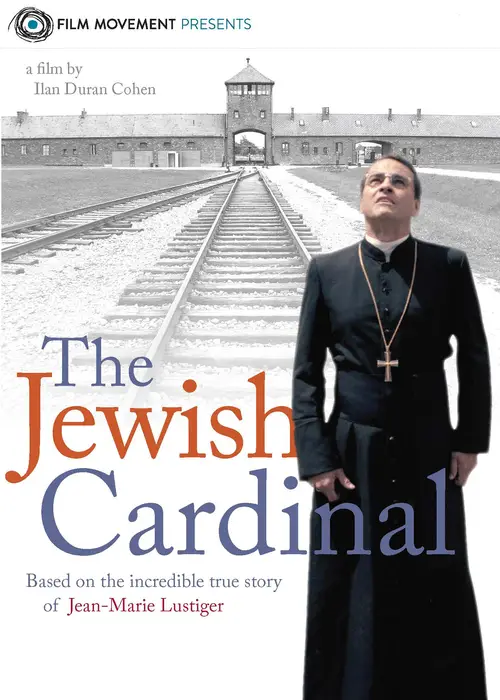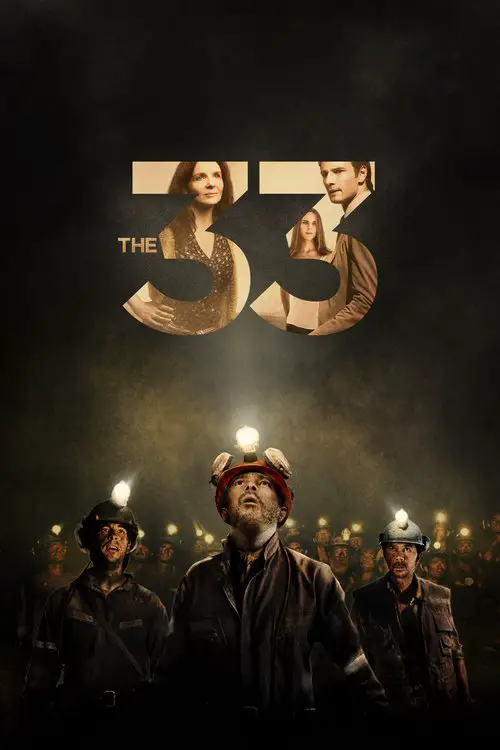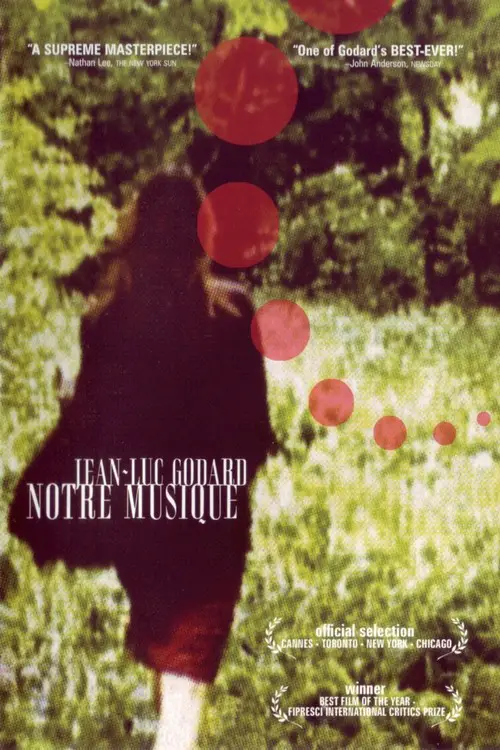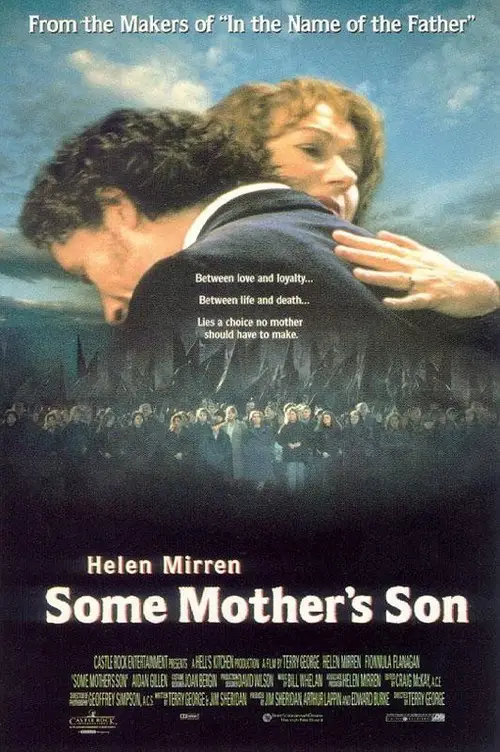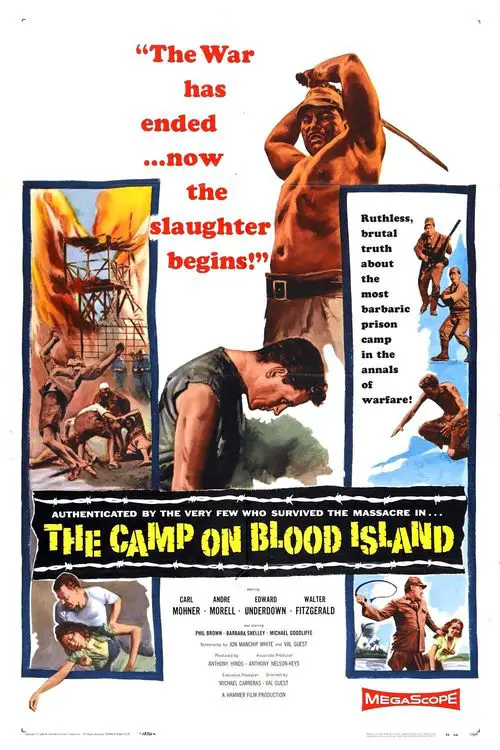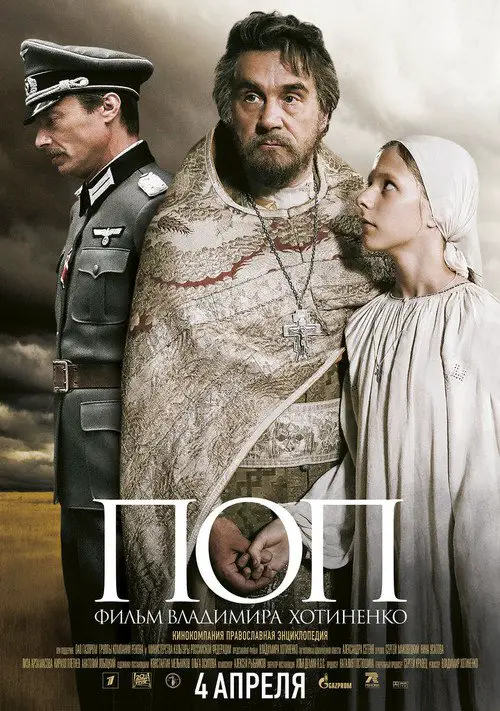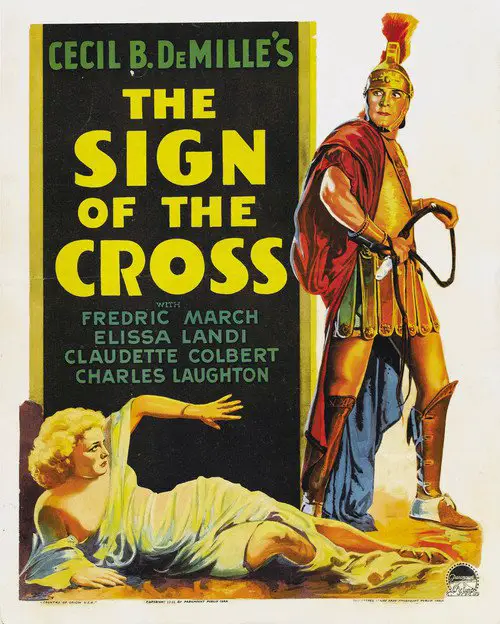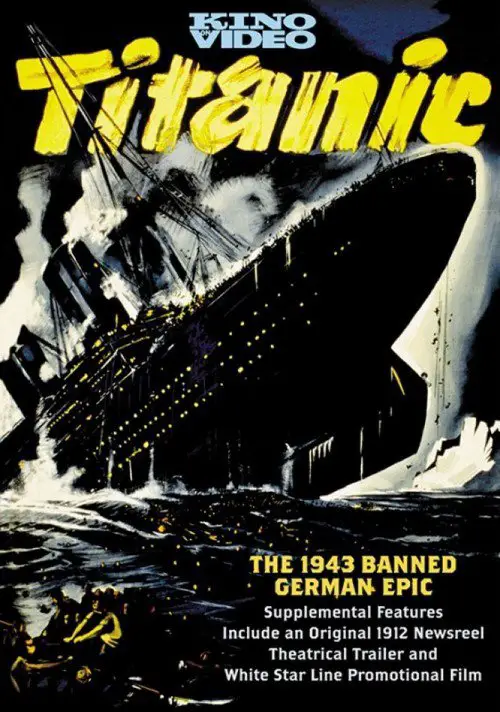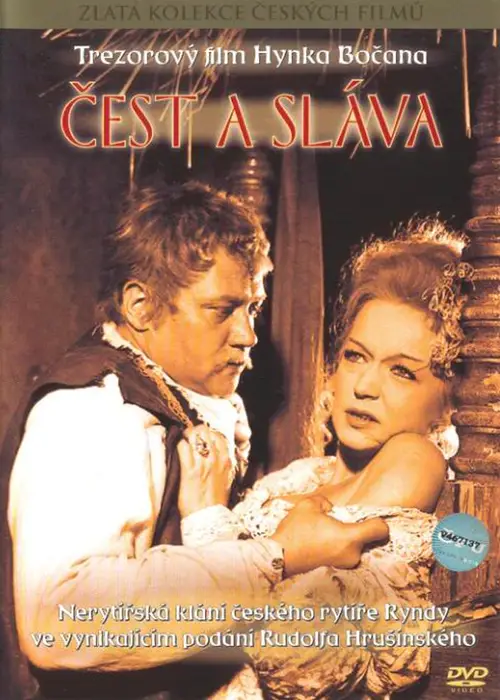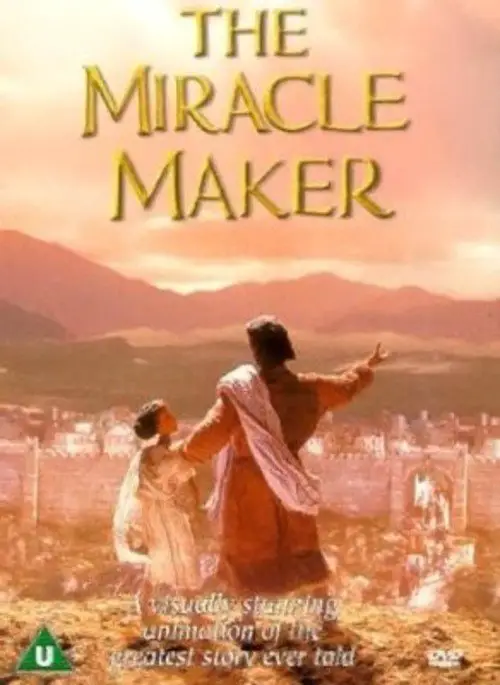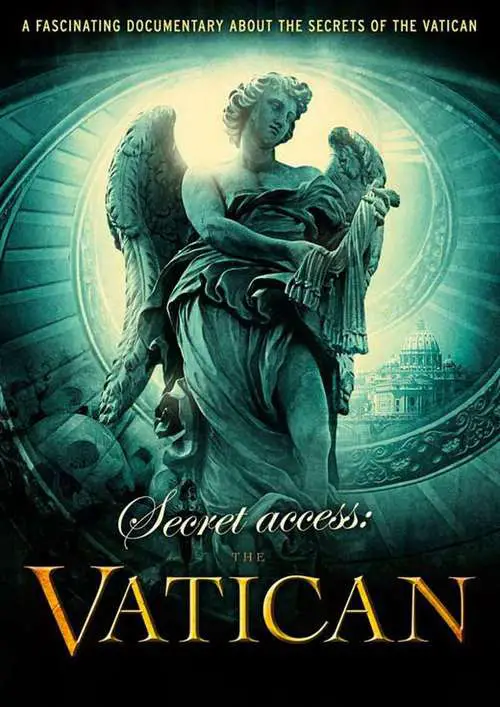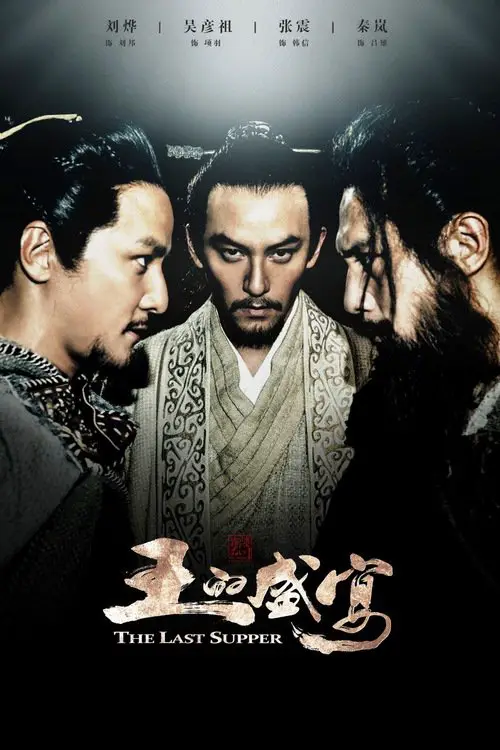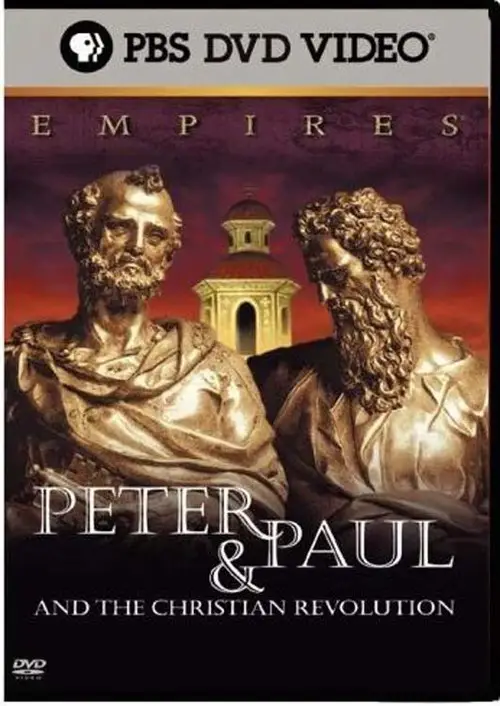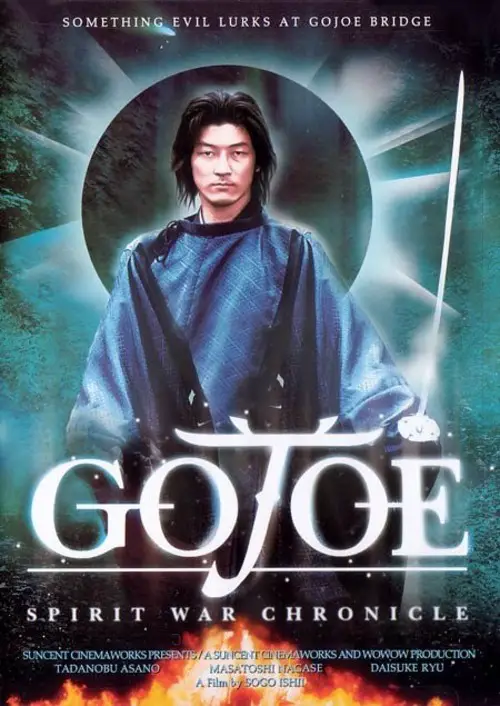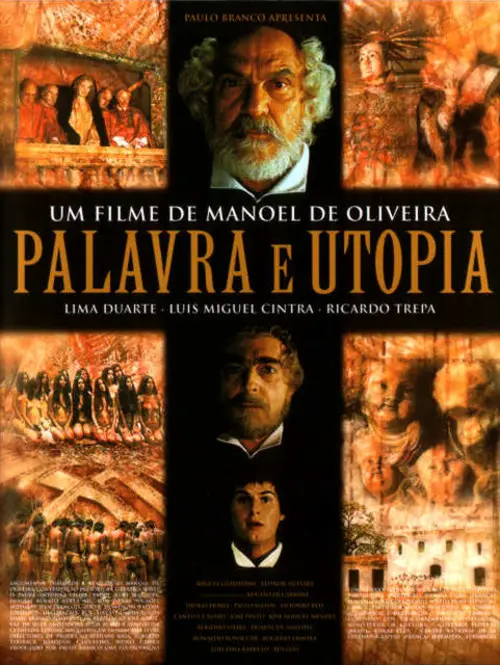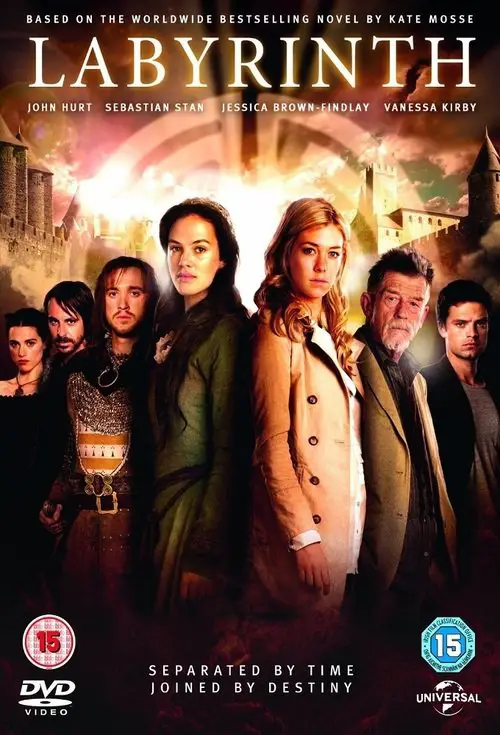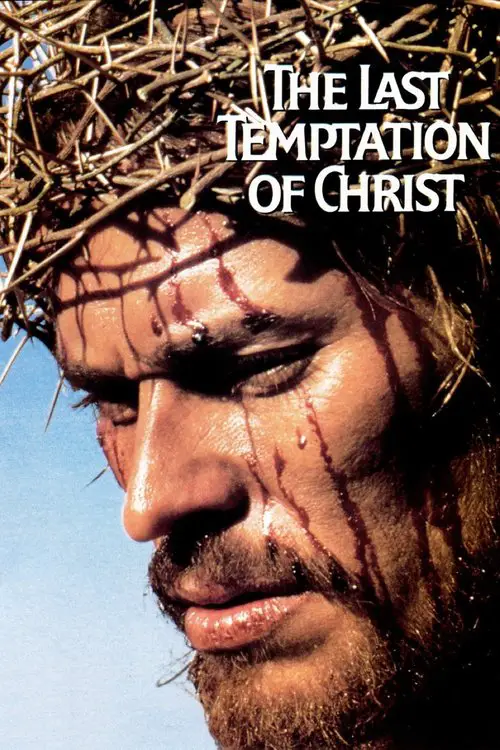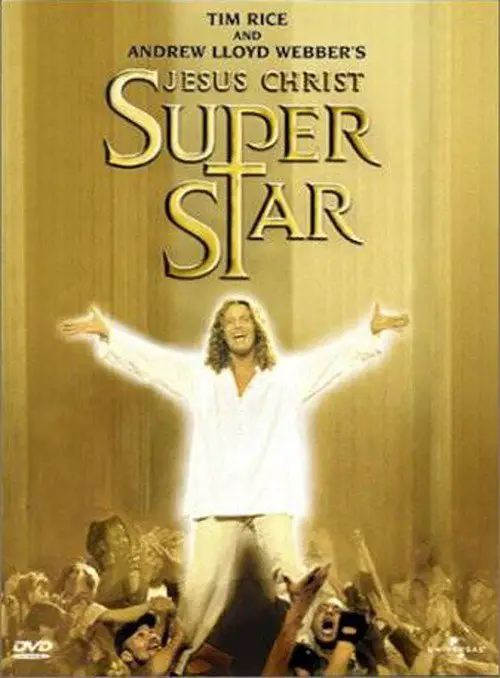Apostle Peter and the Last Supper (2012)
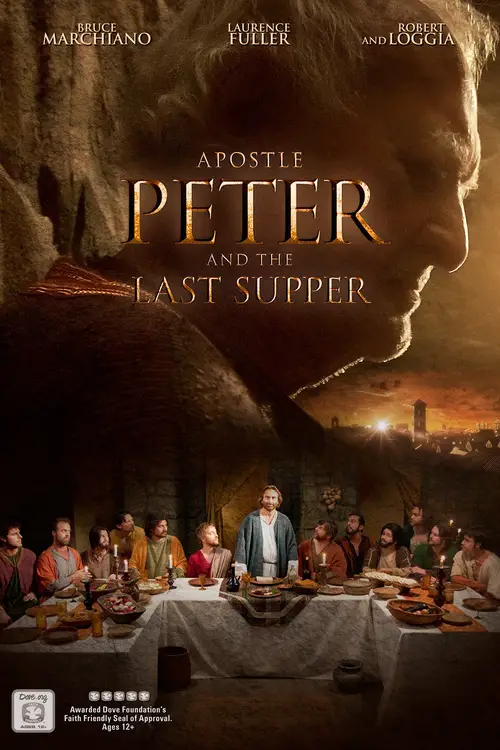
Similar movies
The story picks up at the point where "The Robe" ends, following the martyrdom of Diana and Marcellus. Christ's robe is conveyed to Peter for safe-keeping, but the emperor Caligula wants it back to benefit from its powers. Marcellus' former slave Demetrius seeks to prevent this, and catches the eye of Messalina, wife to Caligula's uncle Claudius. Messalina tempts Demetrius, he winds up fighting in the arena, and wavers in his faith.
Saint Peter, a reluctant but passionate leader, from the crucifixion of Jesus to his own. The film's first half dramatizes the New Testament's "Acts": early fear, the renewal of Pentecost, Saul's conversion, the decision to baptize pagans, and the Apostles' dispersal. In the second half, an aged Peter goes to Rome to join Paul, arriving on the day of Paul's arrest. Paul's death brings a crisis to Rome's Christians and to Peter; lessons from Jesus's teachings guide his decision to stay. Events within the fictive household of Persius, a Roman aristocrat, capture the upheaval that Christian teachings bring to the Eternal City.
Epic account of the thief Barabbas, who was spared crucifixion when Pilate manipulated the crowd into pardoning him, rather than Jesus. Struggling with his spirituality, Barabbas goes through many ordeals leading him to the gladiatorial arena, where he tries to win his freedom and confront his inner demons, ultimately becoming a follower of the man who was crucified in his place.
Risking his life, Luke ventures to Rome to visit Paul -- the apostle who's bound in chains and held captive in Nero's darkest and bleakest prison cell. Haunted by the shadows of his past misdeeds, Paul wonders if he's been forgotten as he awaits his grisly execution. Before Paul's death, Luke resolves to write another book that details the birth of what will come to be known as the church.
In the 17th century, a Bulgarian Christian region is selected by the Ottoman rulers to serve as an example of conversion to Islam. A Janissary who was kidnapped from the village as a boy is sent to force the reluctant inhabitants to convert. The Turkish governor seeks a peaceful solution, but ultimately torture, violence, and rebellion break out.
Passion, beauty, and brilliant storytelling are all on display in this six-hour-plus epic from Italian director Franco Zeffirelli. Robert Powell is superb in the title role, and with the overwhelming success of this TV movie throughout the world, has perhaps become what Jesus looks like in many people's minds. The story begins with the arrangements of the wedding between Joseph and Mary, and chronicles the nativity, the encounter with John the Baptist (a ferocious Michael York) and everything up to the crucifixion and resurrection.
The Nazis, exasperated at the number of escapes from their prison camps by a relatively small number of Allied prisoners, relocates them to a high-security "escape-proof" camp to sit out the remainder of the war. Undaunted, the prisoners plan one of the most ambitious escape attempts of World War II. Based on a true story.
In 1942 British soldier Jack Celliers comes to a japanese prison camp. The camp is run by Yonoi, who has a firm belief in discipline, honour and glory. In his view, the allied prisoners are cowards when they chose to surrender instead of commiting suicide. One of the prisoners, interpreter John Lawrence, tries to explain the japanese way of thinking, but is considered a traitor.
Mary and Joseph make the hard journey to Bethlehem for a blessed event in this retelling of the Nativity story. This meticulously researched and visually lush adaptation of the biblical tale follows the pair on their arduous path to their arrival in a small village, where they find shelter in a quiet manger and Jesus is born.
This dramatization from the New Testament originated as a 342-minute, five-part television mini-series; it was subsequently released in a shortened, 280-minute version. In part one, the Apostles call the pilgrims of Jerusalem to be baptized, and Peter (Jacques Dumur) and John (Mohamed Kouka) are arrested by the Sanhedrin but later set free. In part two, Stephen (Zignani Houcine) is stoned for disobeying Mosaic Law, Philip (Bepy Mannaiuolo) baptizes an Ethiopian eunuch, and Saul (Edoardo Torricella) is blinded by the Lord while journeying to Damascus. In part three, Peter baptizes a centurion and Saul, renamed Paul, makes his first mission journey from Antioch in Syria to Pisidian Antioch. In part four, Paul preaches the equality before God of both the circumcised and uncircumcised. In part five, Paul is arrested in Jerusalem and sent to stand trial in Rome.
Mikolás and his brother Adam rob travelers for their tyrannical father KozlÃk. During one of their "jobs" they end up with a young German hostage whose father escapes to return news of the kidnapping and robbery to the King. Kozlik prepares for the wrath of the King, and sends Mikolás to pressure his neighbor Lazar to join him in war. Persuasion fails, and in vengeance Mikolás abducts Lazar's daughter Marketa, just as she was about to join a convent. The King, meantime, dispatches an army and the religious Lazar will be called upon to join hands against Kozlik. Stripped-down, surreal, and relentlessly grimy account of the shift from Paganism to Christianity.
This classic film portrays 3½ years of Jesus' ministry as told in the Gospel of Luke from the Good News and King James translations of the Bible. Producer John Heyman created a film so true-to-life, you will feel like you are in first-century Palestine. Everything from clothing, to customs, to food of the country during that time period was studied to ensure authenticity. With a cast of more than 5,000 Israelis and Arabs, "JESUS" was filmed on location in Israel.Own or share the gift of this wonderful story, still as clear, precise, and relevant as it was 2,000 years ago. The film concludes with an opportunity to trust Christ as Savior and Lord.
The King of Kings is the Greatest Story Ever Told as only Cecil B. DeMille could tell it. In 1927, working with one of the biggest budgets in Hollywood history, DeMille spun the life and Passion of Christ into a silent-era blockbuster. Featuring text drawn directly from the Bible, a cast of thousands, and the great showmanâs singular cinematic bag of tricks, The King of Kings is at once spectacular and deeply reverentâpart Gospel, part Technicolor epic.
Based on the true story of the greatest treasure hunt in history, The Monuments Men is an action drama focusing on seven over-the-hill, out-of-shape museum directors, artists, architects, curators, and art historians who went to the front lines of WWII to rescue the worldâs artistic masterpieces from Nazi thieves and return them to their rightful owners. With the art hidden behind enemy lines, how could these guys hope to succeed?
Don Victorino Hernandez, a creole secular priest from Manila, has two passions: botany and the total conversion of the native population particularly the Agtas, who in spite of the rigorous undertakings of Spanish colonialism continue to live in the hinterlands, giving them a notorious reputation in the minds of the lowlanders as well as the colonizers.
Paradise Road is a 1997 film which tells the story of a group of English, American, Dutch and Australian women who are imprisoned in Sumatra during World War II. It was directed by Bruce Beresford and stars Glenn Close as beatific Adrienne Pargiter, Frances McDormand as the brash Dr. Verstak, Pauline Collins as missionary Margaret Drummond (based on missionary Margaret Dryburgh), Julianna Margulies as American socialite Topsy Merritt, Jennifer Ehle as British doyenne and model Rosemary Leighton Jones, Cate Blanchett as Australian nurse Susan McCarthy and Elizabeth Spriggs as dowager Imogene Roberts. Basing his picture on real events, Bruce Beresford tells the story of a vocal orchestra created by the women in a Japanese P.O.W. camp, a classic survivors' tale extolling women's ability to survive hardship and atrocity through perseverance, solidarity and creativity.
The picture features the life and deeds of Boris I - strong historic personality, which completes his mission to the full and at the end of his life receives holy orders. Prince Boris I is ruling in the late 9th century. In his youth, he, the brilliant statesman and diplomat, is experiencing heavy defeats in the wars he wages against his neighbors. Nonetheless, he manages not to cede any territories to the enemies. Under his rule, Bulgaria breaks with paganism and joins the Christian community, paying an exorbitant price, a heavy death toll, but there is no other way. The adoption of Christianity in 864 was a historical event of great significance. It guaranteed Boris I much need peace with the Eastern Roman Empire and allowed him to merge the numerous tribes inhabiting the country into a unified nationality and later to found a state. Boris I introduced the Slav script, thus turning Bulgaria into the cradle of Slav culture.
The death of King Henry VIII throws his kingdom into chaos because of succession disputes. His weak son Edward, is on his deathbed. Anxious to keep England true to the Reformation, a scheming minister John Dudley marries off his son, Guildford to Lady Jane Grey, whom he places on the throne after Edward dies. At first hostile to each other, Guildford and Jane fall in love. But they cannot withstand the course of power which will lead to their ultimate downfall.
French drama based on the 1996 kidnapping and killing of seven monks in Algeria. A group of Trappist monks reside in the monastery of Tibhirine in Algeria, where they live in harmony with the largely muslim population. When a bloody conflict between Algeria's army and Muslim Jihadi insurgents disrupts the peace, they are forced to consider fleeing the monastery and deserting the villagers they have ministered to. In the face of deadly violence the monks wrestle with their faith and their convictions, eventually deciding to stay and help their neighbours keep the army and the insurgents at bay.
Nathan Algren is an American hired to instruct the Japanese army in the ways of modern warfare -- in this lush epic set in the 1870s, which finds Algren learning to respect the samurai and the honorable principles that rule them. Pressed to destroy the samurai's way of life in the name of modernization and open trade, Algren decides to become an ultimate warrior himself and to fight for their right to exist.
The Jewish Cardinal tells the amazing true story of Jean-Marie Lustiger, the son of Polish-Jewish immigrants, who maintained his cultural identity as a Jew even after converting to Catholicism at a young age, and later joining the priesthood. Quickly rising within the ranks of the Church, Lustiger was appointed Archbishop of Paris by Pope John Paul IIâand found a new platform to celebrate his dual identity as a Catholic Jew, earning him both friends and enemies from either group. When Carmelite nuns settle down to build a convent within the cursed walls of Auschwitz, Lustiger finds himself a mediator between the two communitiesâand he may be forced, at last, to choose his side.
Jean-Luc Godard's poetic meditation on war, violence and defeat. The film is structured in three parts. The three segments are "Hell", "Purgatory", and "Heaven". The first segment is a montage of war images from documentary and fictional sources. The second concerns two young Jewish women attending a European arts conference in Sarajevo. The final segment concerns the after life.
The movie takes place in the early 18th century on the borders between Bosnia and Dalmatia, the crossroad between the Ottoman Empire and the Republic of Venice. It deals with issues relating to the region's native Croats as they struggle between to live between two empires and two faiths: Catholicism and Islam.
Based on the true story of the 1981 hunger strike in a British prison, in which IRA prisoner Bobby Sands led a protest against the treatment of IRA prisoners as criminals rather than as prisoners of war. The film focuses on the mothers of two of the strikers, and their struggle to save the lives of their sons.
Set in a Japanese prisoner of war camp during World War II, the film focuses on the brutality and horror that the allied prisoners were exposed to as the Japanese metered out subjugation and punishment to a disgraced and defeated enemy. This harrowing drama concentrates on the deviations of legal and moral definitions when two opposing cultures clash. Although fictional, this was one of the earliest films to deal realistically with life and death in a Japanese prisoner-of-war camp during the Second War.
After burning Rome, Emperor Nero decides to blame the Christians, and issues the edict that they are all to be caught and sent to the arena. Two old Christians are caught, and about to be hauled off, when Marcus, the highest military official in Rome, comes upon them. When he sees their stepdaughter Mercia, he instantly falls in love with her and frees them. Marcus pursues Mercia, which gets him into trouble with Emperor (for being easy on Christians) and with the Empress, who loves him and is jealous.
This little-known German film retells the true story of the British ocean liner that met a tragic fate. Ernst Fritz Fürbringer plays the president of the White Star Line, who unwisely pressed the Titanic's captain (Otto Wernicke) to make the swiftest possible crossing to New York. Interestingly, director Herbert Selpin was arrested by the Gestapo during this film's production, and German censors banned the film for its scenes of panic and terror.
This historical film by Hynek BoÄan touches upon the indecisiveness of the Czech nation, ready to bend the backbone in face of foreign rule. Situating the story at the close of the Thirty Year War enabled the depiction of the misery of the people that affects even an impoverished aristocratic milieu. Rudolf HruÅ¡Ãnský appears here in the role of an indecisive knight, persuaded for a long time and in vain to join the anti-Habsburg movement. The story does not only captivate through the depiction of manifold human characters, intrigues and sycophancy, but also through the circumstances ruling over the devastated farmstead, sunk in mud and crudeness. One of the best films with an updating tendency has come into being here, rightly being named along the such greats as Kladivo na ÄarodÄjnice (Witches' Hammer).
A mother and father in search of help for their sick daughter cross paths with an extraordinary carpenter named Jesus, who has devoted his life to spreading God's word. An amazing miracle brings to light the true meaning of Christ, and the sacrifices he endured for the deliverance of mankind. A compelling story of faith, trust, and devotion.
The film takes you on a journey inside the Vatican like you've never seen it before. From the ancient "City of the Dead" beneath St. Peter's basilica to the vaults of the Secret Archives, to the Pope's private offices and TV room. The show also explores the long and tumultuous relationship between the Vatican and the U.S., uncovering documents that date back to the Civil War and exploring Reagan's relationship with John Paul II in their quest to combat the Soviets during the Cold War.
Two thousand years ago, in the Roman province of Judea, Jesus was crucified by imperial troops. Thousands before him had suffered the same fate. But unlike his predecessors on the cross, Jesus did not disappear from history. Instead, his memory was kept alive by a small band of Jews - men and women who held fast to their conviction that Jesus was the Messiah.
Benkei, a master fighter and killer, vows never to take another life after his conversion to Buddhism. His faith in pacifism, however, is shaken and ultimately broken by the attacks from a trio of fighters known only as "the demons". Taking up his sword once more, he sets out to end their murderous terror.
She inherits a house in the South of France from an aunt she has never met; she is haunted by dreams of a woman from the past, whom she does not know; and now she stumbles upon an archaeological find that will bear witness to a genocide committed 800 years ago on European soil, which will lead Alice Tanner to the secrets of the Holy Grail.
"The Passion of the Christ" is a film about the last 12 hours in the life of Jesus. Director Mel Gibson received much criticism from critics and audiences for his explicit depiction of and focus on violence and on christs suffering, especially on the part of the jewish community. The films languages are Arabic, Latin and Hebrew and its actors are laymen which was controversially received as well.
Jesus (Willem Dafoe), a humble Judean carpenter beginning to see that he is the son of God, is drawn into revolutionary action against the Roman occupiers by Judas (Harvey Keitel) -- despite his protestations that love, not violence, is the path to salvation. The burden of being the savior of mankind torments Jesus throughout his life, leading him to doubt. As he is put to death on the cross, Jesus is tempted by visions of an ordinary life married to Mary Magdalene (Barbara Hershey).
Tim Rice and Andrew Lloyd Webber's Jesus Christ Superstar first exploded onto the West End stage in 1971 and it was clear that the musical world would never be the same again. For the first time ever, Jesus Christ Superstar has been specially filmed for video. Shot at Pinewood Studios, this brand new filmed stage version starring Glenn Carter and Rik Mayall captures one of the best score Andrew Lloyd Webber has ever written and is packed with hit songs including, 'I Don't Know How To Love Him', 'Gethsemane' and 'Superstar'.
© Valossa 2015–2026
| Privacy Policy
